Virginia Republicans Step Back From The Brink Of Insanity, Pick 2016 Primary Over Convention
It was a close vote, but Virginia's Republican leaders did the smart thing yesterday in picking a primary over a convention in 2016.
Virginia Republicans dodged something of a public relations and electoral disaster yesterday when the party’s Central Committee voted, in a close vote, to hold a Presidential Primary in 2016 rather than a convention:
STAUNTON, Va. — Virginia’s Republican presidential nominating contest next year will be a primary open to all voters instead of a party-run convention, GOP leaders decided Saturday by a slim margin.
The decision delivered a blow to a coalition of tea party-influenced activists called the Conservative Fellowship. Many have blamed that group for pushing the party to the right, costing Republicans statewide offices and ousting former U.S. House majority leader Eric Cantor.
A number of its stalwart members broke with the fellowship for the first time and joined moderate establishment Republicans who think a primary is the best way to grow the party and who worry that the state party couldn’t pull off a high-stakes convention.
Until now, members of the fellowship had been unified in their commitment to conventions. Yet moderates persuaded some of them to vote for a 2016 presidential primary in exchange for a recommendation for a convention in 2017, when the party will choose nominees for governor and other statewide offices.
Members of the Republican State Central Committee voted 42 to 39 for the compromise after a nearly five-hour meeting at the Stonewall Jackson Hotel and Conference Center here in the Shenandoah Valley.
John Whitbeck, state GOP chairman, said bitter party battles in recent years have distracted Virginia Republicans, giving their Democratic counterparts an organizing edge.
“While we’ve been fighting the last couple years, Democrats have been registering tens of thousands of voters. They’ve been holding meeting after meeting while we’ve been fighting amongst ourselves,” he said. “Everything we do should be about winning. Winning is all that matters. . . . We have not won a statewide race in a long time.”
Proponents of each approach said their side had the best formula for engaging activists and rebuilding the base — key goals for a party that has been shut out of all five statewide offices and has struggled to raise money since Cantor’s loss to Dave Brat in a primary last summer.
Conventions are day-long events that tend to attract only the most committed — and conservative — activists, while a state-run primary is held in polling places across the commonwealth and open to all voters.
Primary enthusiasts say their approach is the only way to generate a list of Republican loyalists — data crucial to future get-out-the-vote and fundraising efforts — in Virginia because the state does not have party registration.
Nearly 500,000 voters cast ballots in the 2008 Republican primary. Those who favor a convention say at most 15,000 voters would be likely to attend.
(…)
Proponents of holding a convention said it would have excited Republicans serious about building the base of the party and injected much-needed cash into the party’s coffers.
Details would have been worked out over the summer, but early proposals said a $35 delegate fee, candidate filing fees as high as $25,000 and sponsorships could have generated up to $700,000. The event could have been held at the John Paul Jones Arena in Charlottesville, the home of University of Virginia basketball and the largest indoor venue in the state, with a capacity of about 14,500.
“I think this is a really exciting opportunity to supercharge our base . . . and raise some much-needed funds,” said Steve Albertson, chairman of the Stafford County GOP, a convention proponent. “However the vote turns out, we are still on the same team. We need to learn to not take this so personally.”
Those who favor a primary say their opponents underestimated the cost of holding a massive convention and noted that the American Civil Liberties Union of Virginia has already warned the party against charging fees that could be interpreted as poll taxes.
By the time the committee met yesterday in Staunton, with many Republican activists and bloggers in attendance to take part in the process, there had been at least some sense the momentum in the debate had shifted decidedly in favor of the group favoring a primary. Additionally, there was some indication that Republicans outside the state had been lobbying committee members in favor of a primary for some time. In any case, as I discussed last week, looking at the matter from a purely objective point of view it was clear that a primary was the better choice for Virginia Republican than a convention. It isn’t a guarantee that Republicans will win Virginia in the fall, of course, but at the very least the party has avoided the picture of picking a victor that represented the extremist wing of the party as happened in 2013. Additionally, since the current plan would schedule Virginia’s primary for the beginning of March 2016, just in the wake of the early state contests in Iowa, New Hampshire, South Carolina, and Florida, the Commonwealth is likely to play a large role in deciding who the Republican Party’s nominee in 2016 will actually be. That, at least, will make things far more interesting around here than a convention in a crowded hall in Charlottesville would have been.
The other factor that may have played a role in the Committee’s decision to go with a primary over a convention is the threat that doing so would have exposed the Republican Party of Virginia to a lawsuit that would have been expensive, lengthy, led to little more than bad public relations, and which it probably would have lost. The convention that the RPV would have held would have included, as most events do, an admission fee meant to cover the costs of the event itself and, of course, to raise money for the party. No person who had not paid the admission fee would be able to cast a vote in the convention itself. This led the American Civil Liberties Union, supported by several Republicans opposed to the idea of a convention, to warn the party that going this route would violate the 24th Amendment’s bar against a Poll Tax as well as certain provisions of the Voting Rights Act. When Virginia Republicans tried to impose a similar fee for a convention to pick a U.S. Senate candidate in 1994, it ultimately withdrew that requirement after the Supreme Court ruled that individual defendants could sue the party to stop imposition of the fee. If it had gone forward with that plan this time, the same sort of lawsuits would most assuredly have been filed.
The other part of yesterday’s decision is one that sets up a similar political battle in 2016 when it comes to planning the candidate selection process for 2017, when Virginia will be choosing another Governor. In what appears to have been a compromise between the two sides arguing over the process in 2016, the committee agreed to hold a nominating convention to pick the party’s nominees for Governor, Lt. Governor, and Attorney General in 2017 rather than a primary. The party held a convention in 2013 as well, of course, and that resulted in the nomination of not only Ken Cuccinelli for Governor, but also E.W. Jackson, Jr. for Lt. Governor. While Cuccinelli came closer to winning than expected, Jackson lost so badly that i was evident that many Republicans who had voted for Cuccinelli and Republican nominee for Attorney General Mark Obenshain could not bring themselves to vote for him. Given that 2013 was the first time in decades that Republicans had been shut out of all three statewide races in the same election, the GOP is likely to be keen to do well in 2017 and candidate selection is going to be a large part of the process. While the committee did choose a convention for 2017 yesterday, most of the reports I have read about this matter suggest that this is an issue that a new State Central Committee will be able to revisit next year when planning for 2017. If that’s the case, we can expect this battle to happen all over again. For now, though, Virginia Republicans have at least dodged a bullet for 2016.
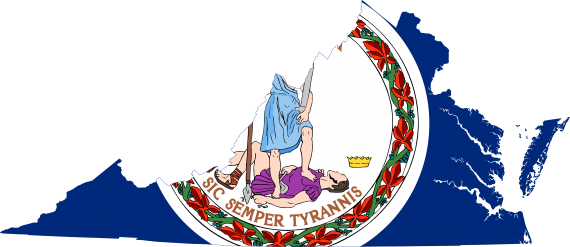

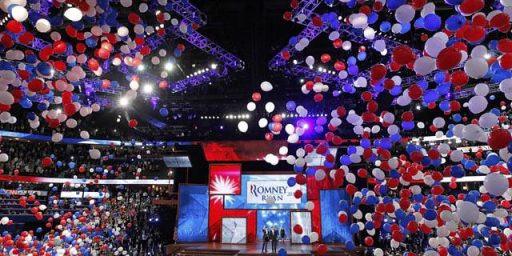
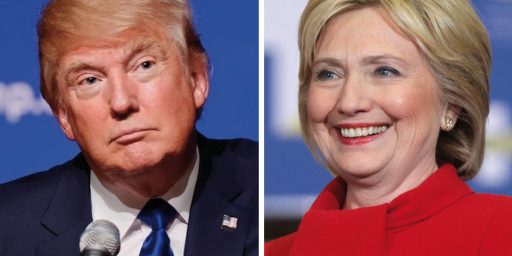
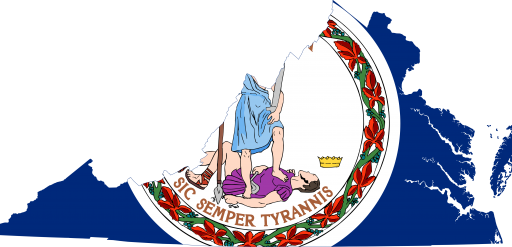
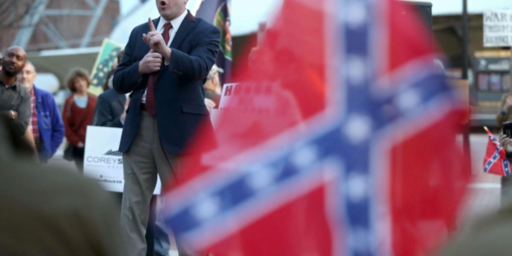
Not really sure the Muppet Show a Republican Primary usually looks like is really better than the proposed convention.
Perhaps a ‘first robin of spring’ that the tea party/radical right phenomenon is receding?
staunton, eh?
i would have thought lynchburg would be more appropriate, you know, since nova isnt the “real” virginia…
I’m left wondering to what extent non-Republican voters, given the massive lead Clinton enjoys over her few challengers, will have some fun with the Republican primary in VA by crossing over to vote for the loonies.
Too bad. As long as Republicans remain crazy, I prefer they be visibly crazy.